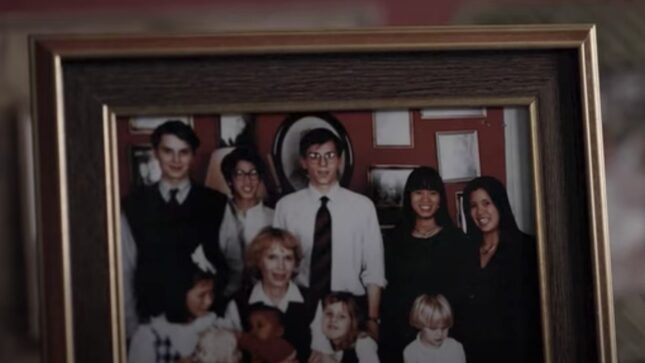

There are certain topics in American life that feel uniquely unconducive to fruitful conversation: abortion, the death penalty, Woody Allen. I believe what I believe—abortion should be widely available and free, the death penalty is an abomination, Woody Allen is a big-time creep—and it’s unlikely that anyone will change my mind, although many people persist in trying.
The four-part HBO docuseries Allen v. Farrow, which debuted on Sunday, should confound the Woody Allen defenders. It is a damning case, methodically built by filmmakers Amy Ziering and Kirby Dick, using a combination of personal testimony and archival work. There are court transcripts, interviews with family friends and caretakers, expert analysis, recordings of phone calls between Allen and Farrow following the initial allegation and subsequent custody battle, a direct dissection of the flaws with the Yale-New Haven report Allen claimed at the time was fully exonerating, and there is the heartbreaking home video of seven-year-old Dylan Farrow, taken by her mother, recounting what happened to her. Finally, there is the adult Dylan Farrow that little girl grew up to be, who is poised and credible and still insisting that she is telling the truth.
Throughout each episode her presence acts as an anchor, reminding the viewer that for decades people have been discussing and arguing over and picking apart something that happened to a real person. She recounts her teenage terror of dating because eventually it may lead to expectations of sex, the panic attacks that would follow mentions of Allen’s name, her occasional twinges of jealousy that her own daughter gets to experience growing up with a loving father.
“It has taken me a long time to reconcile that you can love somebody and be afraid of them,” she states at the beginning, and that central tension is what makes this story both universal and terribly particular. The first two episodes of Allen v. Farrow peel back the tabloid frenzy to tell the story of what happens to a girl who cannot trust her father, the second half layers them back on to examine what happens when a father leverages his fame and wealth and power to tell the whole world his daughter is untrustworthy.
It’s that part of the story where Allen v. Farrow reveals a side of Woody Allen the public is less familiar with. Rather than Woody Allen the diminutive neurotic, we see Woody Allen the steamroller—marshaling an enormous PR apparatus to his side and discrediting Mia Farrow as manipulative and vindictive.
In this effort, the series follows what has become a trend of late: Redeeming the wrongly maligned women of the recent past. Arguably most associated with the popular podcast You’re Wrong About, generous reevaluations of the women pop culture cast as villains—Tonya Harding, Monica Lewinsky, Anna Nicole Smith—has become a sort of cottage industry. I generally like this kind of work, and Mia Farrow deserves to join that list, but I’m not sure her story neatly fits in with our developing canon of Women We Mistreated in the ’90s for the basic reason that people weren’t wrong about Woody Allen being a monstrous father—they simply did not care.
After all, the allegations that he molested his adopted daughter came shortly on the heels of the established fact that he fucked his girlfriend’s adopted daughter. He came into Soon-Yi Previn’s life when she was 12 as a father figure and some years later he fucked her and for the most part, people just did not care.
I understand not wanting to care because I too have seen Annie Hall, but I am forced to care because I too have seen Manhattan.
Even now in the wake of toppling other powerful predators, a project aided by Allen’s own son Ronan Farrow who appears in the series with his own stories about how Allen pressured him to denounce his mother and sister as liars, many people insist that the Woody Allen story is more complicated than the rest. There are not hundreds of women accusing Allen, not 60, nor 10, just one. One little girl who you can see worshipping her father in home movies, who you can see suffering to this day because people still worship her father.
Will Allen v. Farrow finally force those who remain staunch defenders of Woody Allen to confront the monstrousness of a man who has made some truly great movies? I don’t know. I certainly hope so. When women come forward to tell their stories of abuse it is easy and common to say it should “spark a conversation” but in this case, I think it should end one.